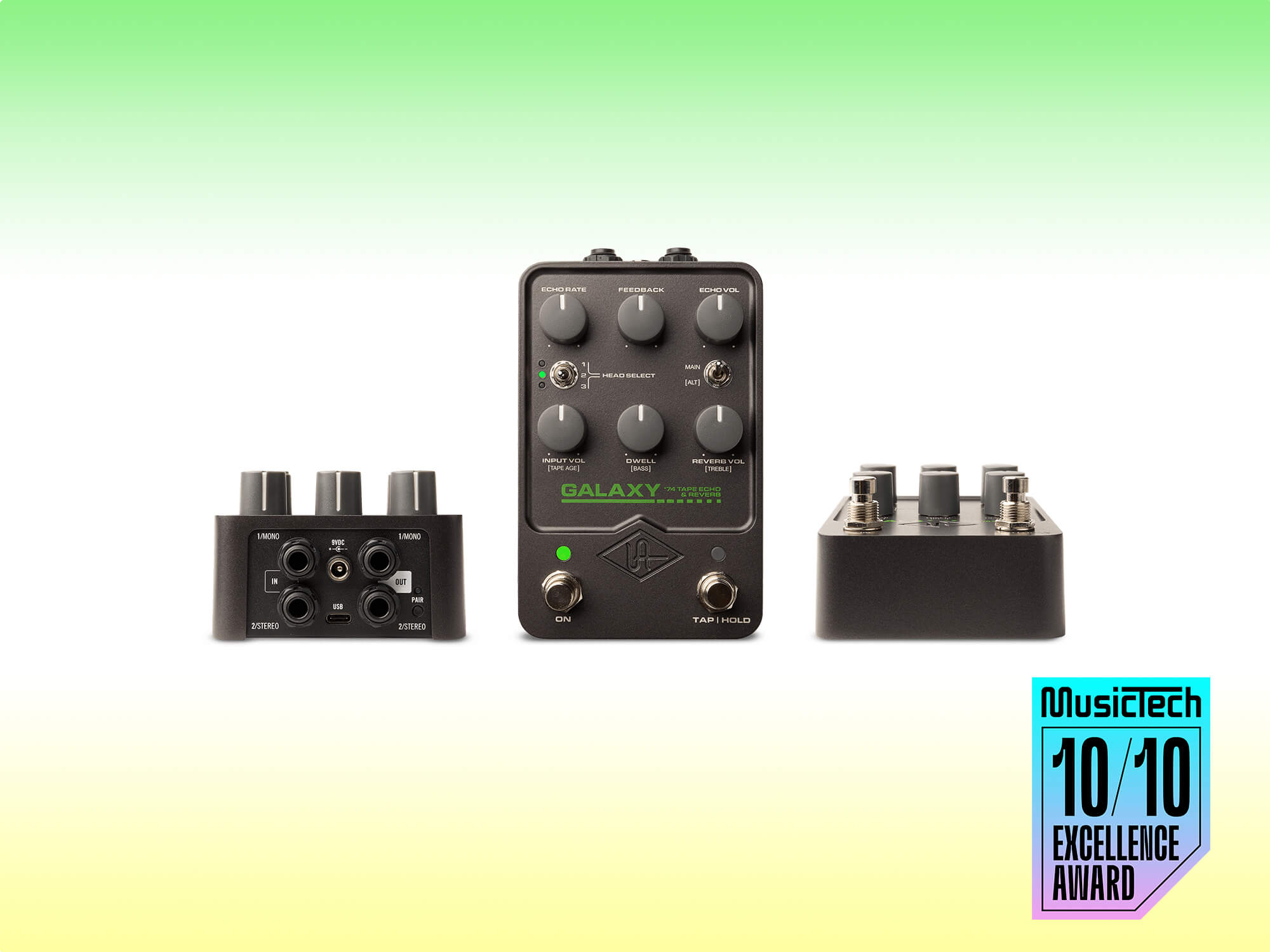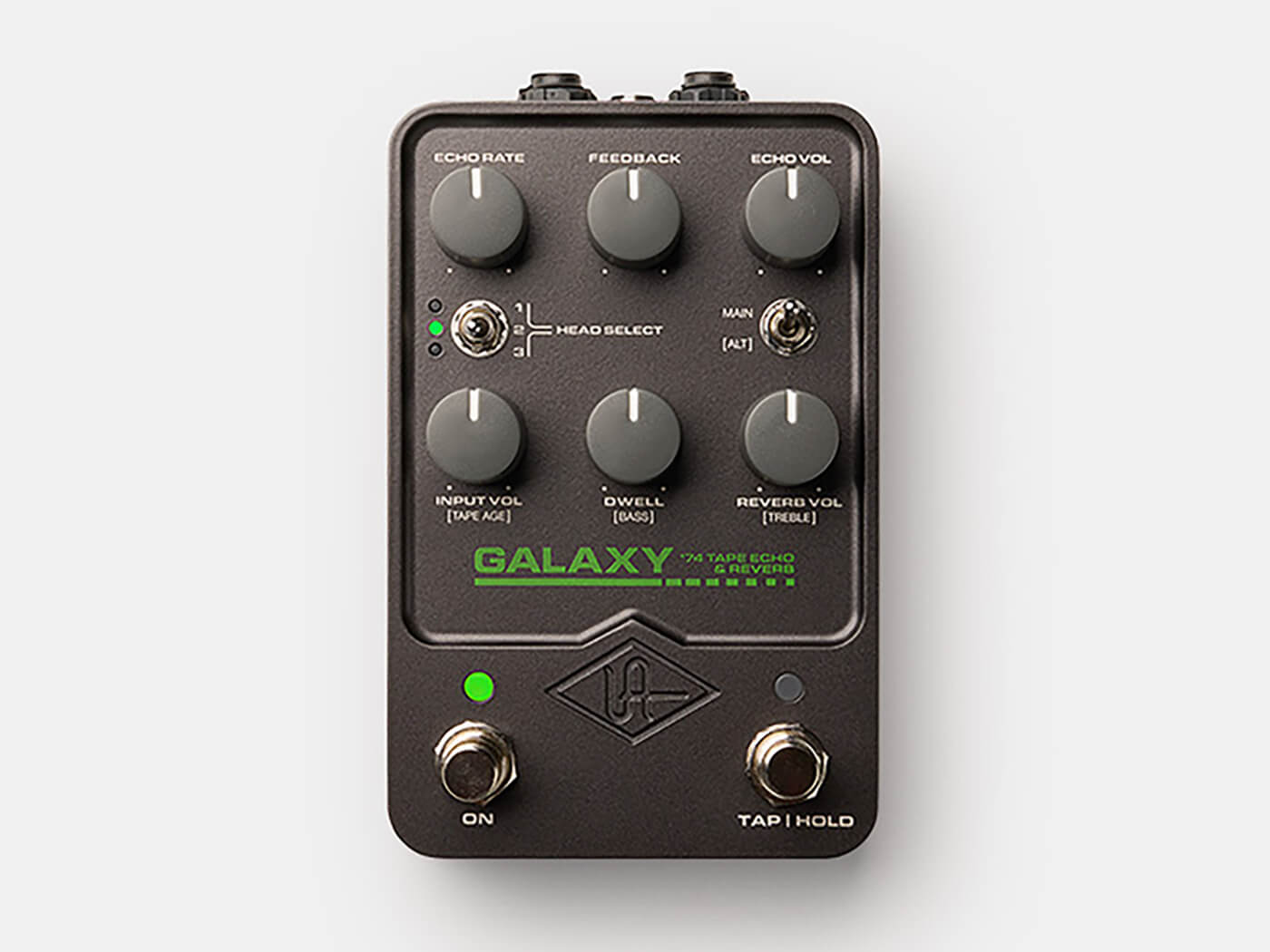Universal Audio’s Galaxy ‘74 is a remarkable tribute to the revered Space Echo
With so many Space Echo emulations on the market, does UA’s premium-priced Galaxy ’74 offer anything new?

Review Overview
Our rating
10
Our verdict
⊕ Simple interface
⊕ Clear indication of tape head selection
⊕ Can be driven into infinite feedback
⊖ It’s relatively big
⊖ Space Echo plugin emulations may offer deeper configurations at a lower price
Universal Audio has a well-earned reputation for creating some of the best effects plugins on the market and, over the past few years, it’s expanded into the stompbox business, with amp modellers and recreations of some classics. The latest products expand that range with several new effects, including the Galaxy ’74 Tape Echo & Reverb.
READ MORE: Universal Audio announces native versions of UAD analogue emulations and three new plugin bundles
The Galaxy is clearly an emulation of the Roland Space Echo – a multi-head tape delay with a built-in spring tank. Original Space Echo units regularly sell for thousands of pounds, placing them outside the budget of most, so a convincing copy is often the next-best thing.
UA’s Galaxy is a substantial pedal; it’s large and reasonably heavy. When working in a studio environment this won’t be a problem. But if it’s mounted onto a board with other pedals, there might be a noticeable weight difference. The pedal has two footswitches, six rotary knobs (three of which have dual functions), and two switches. The rear panel sports stereo in/out jack connectors, a power connector plus a USB-C socket for firmware updates via a computer.
The Galaxy is incredibly easy to operate and, unlike a lot of other Space Echo emulations, doesn’t try to replicate the giant Mode Selector knob from the original’s front panel. The Space Echo’s Mode Selector knob switches between different tape head combinations with and without the built-in reverb. This requires knowing which setting combines which set of heads. Happily, the Galaxy uses a simple set of three LEDs to indicate which tape heads are active. Different combinations are selected by the left-hand, non-latching switch. Our initial impressions are extremely positive – the delay sounds like a tape delay with the characteristic roll-off of the bottom end on some of the repeats.
By changing the speed of the delay, either through moving the rate knob or using the tap tempo footswitch, the pedal effectively recreates the sound of the tape speed changing. In practice, this sounds slightly exaggerated to our ears – when we’ve done it with real tape delays, it’s less pronounced an effect.
The built-in reverb has that distinctive spring tank flutter and maintains the relatively dark tone of the original unit, but without the delay is probably not the most versatile of reverb effects. But blended in with the echo, the additional ambience creates a lovely wash of sound.
The Galaxy has a few additional ’set-and-forget’ controls that are accessed via the UAFX app. This pairs with the pedal via Bluetooth and allows the user to choose whether the delay trails continue after the pedal is switched off and to change the function of the foot switches from the default (on/off and tap tempo) to individual controls for the delay and reverb sections. The pairing process was surprisingly fiddly and the pedal and app didn’t seem that keen to talk to each other and it took several attempts at pairing to get a working connection.

We find at first that the Galaxy sounds a little too clean. Fortunately, Universal Audio has included a tape age function. An interesting aspect of tape delays is that a unit’s characteristics change as the tape ages and becomes worn. By switching to the secondary functions and turning the Tape Age knob clockwise, we can add wow and flutter modulation to the repeats and, when combined with overdriving the input gain, this creates lovely, dirty delay sounds that sound glorious with our Fender Rhodes. And to build texture further, there’s a hold function on the tap tempo footswitch that temporarily increases the feedback to 100 per cent for infinite loops, which creates some real noise.
There’s an abundance of convincing Space Echo emulations on the market (including some from Roland & Boss who made the original) and so the UA Galaxy ’74 Tape Echo & Reverb needs to be significantly better to justify the additional cost. Kudos to UA, because it’s exactly that. It’s one of the most natural feeling tape delay pedals that we’ve used; to our ears, this sounds just as special as the real thing.
UA Galaxy 74 is available now for £299. Learn more at uadio.com